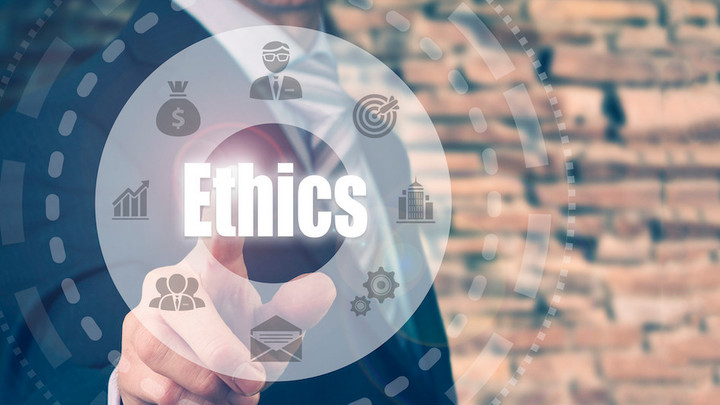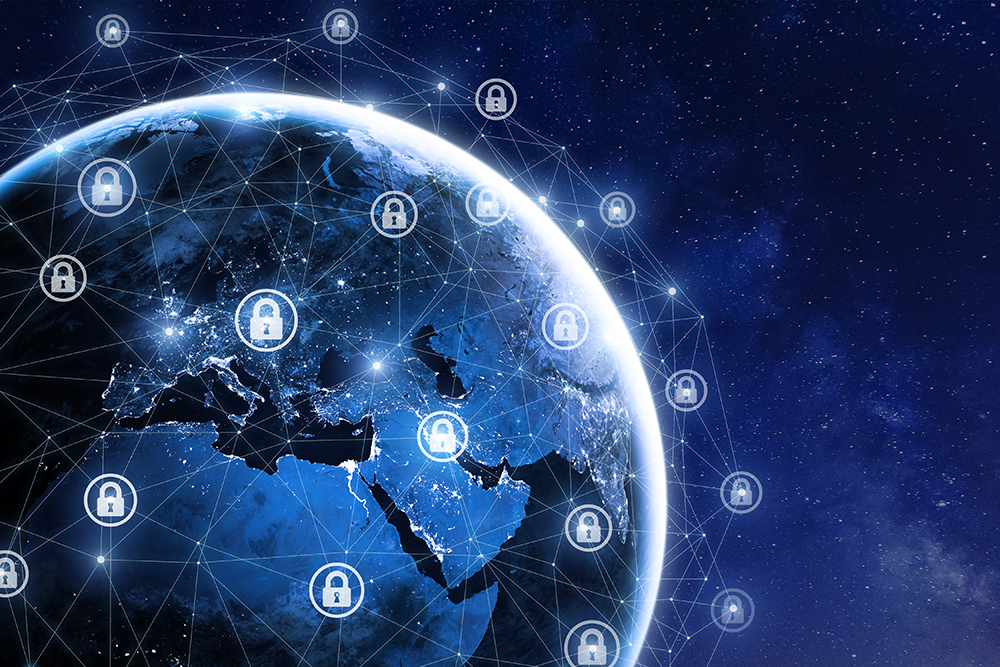Ethics in Digitalization
Henning Lesch from the eco Association explores the need to adapt approaches to regulation in response to the global challenges of digitalization, and the role that self-regulation can play in this transformation.

© Duncan_Andison | istockphoto.com
This article was first published in German in the compendium “Digitale Ethik – Vertrauen in die digitale Welt” in 2019 by eco – Association of the Internet Industry.
Societal values and the conception of what should be seen as “good and right” are subject to constant change. Rarely do they appear in a revolutionary manner, but rather as a gradual – if unsteady – process of development, in which the changes do not manifest themselves directly and obviously. And yet, every so often an event occurs which raises the question of what we see as “good and right”, and what we as a society see as unacceptable.
Added to this is the fact that this conception does not always find unanimous acceptance – either globally, or even in different parts of Europe. The classical world that existed before the fourth industrial revolution – in which nation states determined laws and enforced them within their respective jurisdictions and could see this as a product of their values and norms that in turn determined our ethics – is on the verge of a radical change.
Digitalization, and the Internet as its key technology, is raising new questions for traditional approaches. And existing rules and values need to be discussed anew against this backdrop. While a few years ago it was, for example, quite simple to prohibit a publication and destroy already printed copies, it is no longer readily possible with a home page – and even less so with one that is hosted abroad, and therefore not initially subject to national law.
In Germany, for example, there is currently an active debate on the topics of hate speech and freedom of opinion in the Internet, and how these are to be demarcated. This debate, and the resulting Network Enforcement Act (NetzDG), illustrate both the tension between the values in question and the challenges for defining and enforcing rules that should express these values.
The NetzDG also shows that – through the global character of the Internet and the rapid technical developments that are occurring – both the definition of these rules and the values that act as the basis for them need to be discussed anew, again and again. A fundamental insight would be that – similar to other global phenomena such as limiting emissions in response to climate change – a singular, nation-state approach does not always help, and that legal regulations alone are not sufficient. Rather, they often lose themselves in empty political symbolism or completely miss the mark.
Added to this is the fact that digital technologies are penetrating new areas more and more strongly. Whether in the health sector, in manufacturing, at the office, or when shopping: digital technologies and assistants have already become a fixed component of everyday life for the majority of the population. The capability to process, combine, and maintain data and information to a hitherto unknown extent poses as many questions for industry, society, and the state as dealing with the possibilities of automation and the increasing use of (partially) autonomous systems does. How are traditional economic and industry branches changing, and where do they stand in relation to the digital economy? How will work be organized and shaped in the future – economically and individually? In the context of the transformation now in full swing, these questions cannot always be answered ex ante and concretely. We perceive the changes, see the emerging developments, the opportunities and potential – but also the risks, the anxiety, and the uncertainties that accompany increasing digitalization and interconnectedness.
We must nevertheless find – at least preliminary – answers to the multi-faceted and complex challenges of a digitalized and connected world. This can only succeed if we create a societal consensus and offer orientation in the era of digital transformation. Rights, needs, and legitimate interests must be preserved, balanced, and brought into harmony if societal consensus is to be preserved and society is not to be split.
Politics and society are already to some extent discussing these questions and attempting to find answers. But industry and companies need to reassess their behavior in the context of digitalization. The assumption of social responsibility is gaining increasing importance for companies in the light of digital transformation. Alongside classic topics relating to “Corporate Social Responsibility” – such as environmental aspects, questions of employment security, and employment relationships in companies and in their supply chains – questions as to the consequences of technology and the discussion of ethically-oriented guidelines on particular aspects of digitalization are coming more strongly to the fore.
The self-regulatory approach, which has characterized the Internet since its beginning, demonstrates its effectiveness more and more often, also in other areas in which digital technologies are being used. It creates bridges to connect networks, services, and people with one another, and it shows the limits, the points at which elementary values are at risk.
eco, as the Association of the Internet Industry, has been advocating for an open, technologically neutral, and high-performance Internet for more than 20 years. As the voice of the Internet industry, together with our member companies, we are assuming increasing social responsibility for a digital transformation for the good of all, and an ethically-oriented digitalization – for example, through the intrinsically motivated and largely self-financed eco Complaints Office which, in cooperation with companies and law enforcement agencies, is active in the fight against illegal content in the Internet and works towards deletion and the prosecution of perpetrators. And through supporting industry self-regulatory approaches, as the successful concept of the Certified Senders Alliance demonstrates. But also on an international level, with our activities in the area of Internet Governance.
Digital transformation demands a contemporary legal system and a review of formal and material law with regard to its suitability to digital topics. In order to shape the opportunities and potential of digital transformation positively, one of the central challenges will be whether we can succeed in transferring our societal ethics and the existing set of values to the digital era, and in further developing them. The current debate must involve the entire society and cover a broad spectrum of ethical issues in the areas of digitalization, so that an ethical digitalization, shaped according to ethical values, can succeed. For this, a new definition needs to be discussed for the understanding of the roles of politics, the industry, civil society, and the media.
Attorney-at-Law Henning Lesch is Head of the Capital Office and Head of Policy, Law & Regulation at the eco Association. He has been active in several roles for eco since he joined the association in 2001, with a focus on legal and regulatory topics. He studied Law in Cologne, and gained an additional qualification in Information, Telecommunication, and Media Law from the University of Münster.





